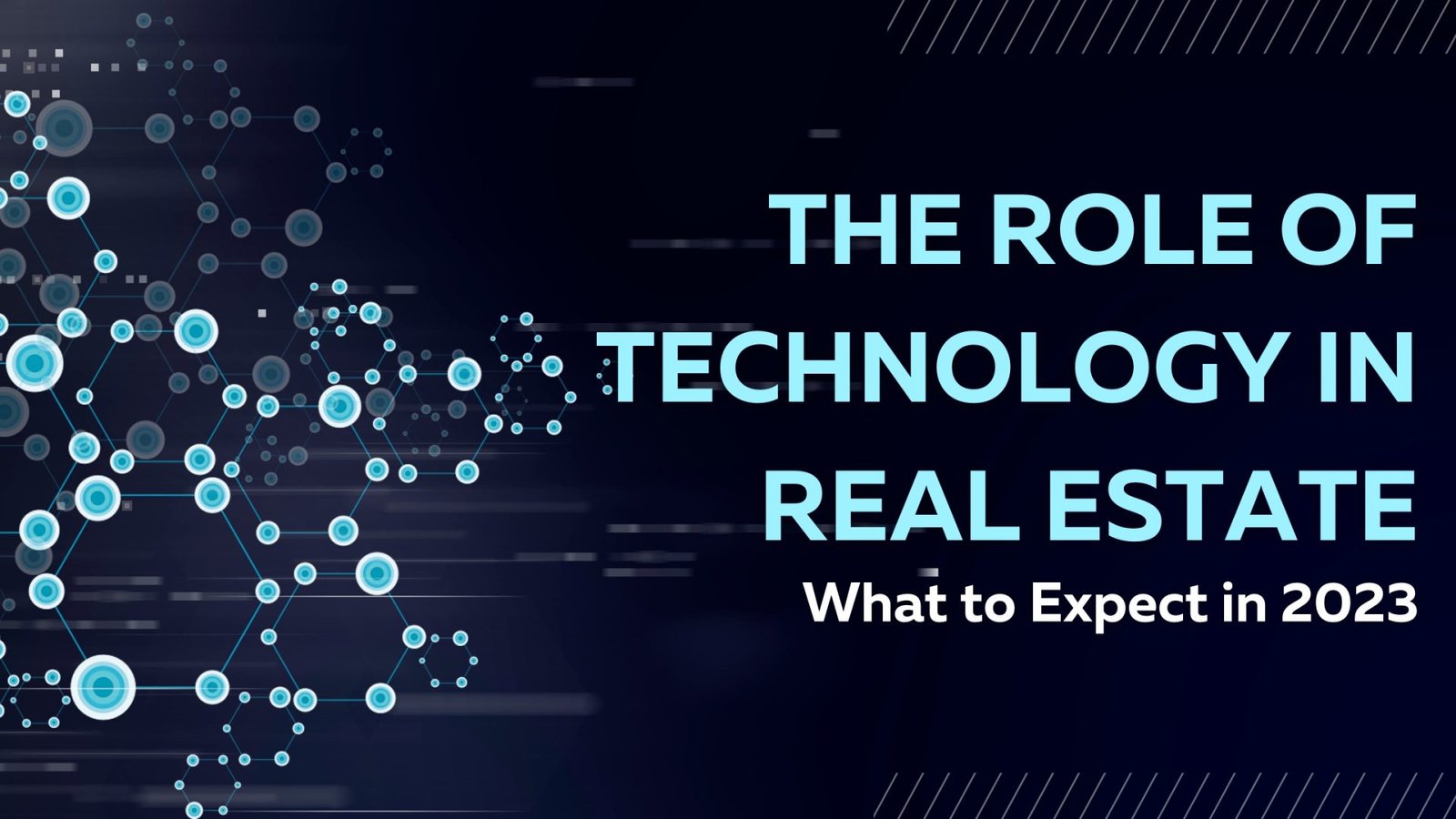The Role of Technology in Real Estate in 2023. The real estate industry has been rapidly evolving over the years, and technology has been a driving force behind this transformation. In 2023, we can expect to see even more advancements in prop-tech, the impact of artificial intelligence (AI), blockchain, and other technologies on real estate transactions. As a real estate professional, it’s crucial to stay updated with these technological changes to remain competitive and provide the best service to clients. In this blog post, we will explore the latest developments in technology and their potential impact on the real estate industry in 2023.
The Latest Advancements in Proptech
The Latest Advancements in Proptech Proptech, short for property technology, refers to the use of technology in the real estate industry to streamline processes and improve the overall customer experience. In 2023, we can expect to see the continued growth of technologies such as virtual reality (VR), augmented reality (AR), drones, and 3D printing. These technologies are changing the way real estate transactions are conducted, from property searches and virtual tours to remote property management. VR and AR can provide immersive experiences for potential buyers, allowing them to virtually walk through properties without physically being there. Drones are being used for aerial photography and property inspections, providing real estate professionals with valuable insights. 3D printing is also gaining traction, enabling the construction of buildings and structures in a more efficient and sustainable manner. These advancements in prop-tech are transforming how real estate professionals market, sell and manage properties in 2023 and beyond.
The Impact of Artificial Intelligence (AI) on Real Estate
Artificial intelligence (AI) is another technology that is reshaping the real estate industry. In 2023, we can expect to see an increased use of AI for data analysis, predictive analytics, and personalization of customer experiences. AI algorithms can analyze vast amounts of data, such as market trends, property values, and customer preferences, to provide real estate professionals with valuable insights and predictions. This can help in making informed decisions related to pricing, investment opportunities, and marketing strategies. AI-powered chatbots and virtual assistants are also becoming more prevalent in the real estate industry, providing quick and personalized responses to customer inquiries and improving customer engagement. The use of AI in real estate can lead to improved operational efficiencies, enhanced customer experiences, and better decision-making processes.
Blockchain and Real Estate Transactions
Blockchain, a decentralized and transparent digital ledger, has the potential to revolutionize real estate transactions. In 2023, we can expect to see increased adoption of blockchain technology in the real estate industry, as it offers benefits such as streamlined processes, increased transparency, and enhanced security. Blockchain can enable smart contracts, which are self-executing contracts that can be recorded on the blockchain, eliminating the need for intermediaries and reducing transaction costs. This can make real estate transactions faster, more efficient, and more secure. Blockchain can also provide a transparent and immutable record of property ownership, reducing the risk of fraud and improving trust among parties involved in a transaction. However, there are also legal and regulatory considerations when it comes to the adoption of blockchain in real estate, and navigating these challenges will be crucial in 2023 and beyond.
Adapting to the Changing Technological Landscape
As technology continues to advance, it’s important for real estate professionals to adapt to the changing technological landscape. Staying updated with the latest technology trends can give real estate professionals a competitive edge and enable them to provide better services to their clients. Here are some tips on how real estate professionals can adapt to the changing technological landscape in 2023:
- Continuous Learning: Stay updated with the latest advancements in prop-tech, AI, blockchain, and other relevant technologies through continuous learning. Attend industry conferences, webinars and workshops, read industry publications and blogs, and participate in online forums and communities to stay informed about the latest technological developments in the real estate industry.
- Embrace Technology: Embrace technology in your daily operations and workflows. Explore and adopt technologies that can streamline your processes, improve your customer interactions, and enhance your overall productivity. This can include using virtual reality for property tours, implementing AI-powered chatbots for customer support, or utilizing blockchain for secure and transparent transactions.
- Invest in Training: Invest in training and upskilling your team on the latest technologies. Provide opportunities for your team to learn and develop skills in areas such as data analytics, AI, and blockchain. This will empower your team to leverage technology effectively in their roles and stay ahead of the competition.
- Stay Customer-Centric: Keep your customers at the center of your technology adoption strategy. Understand their preferences and needs, and use technology to enhance their experience throughout the real estate transaction process. This can include offering virtual tours, personalized property recommendations based on AI-powered algorithms, or providing secure and transparent transactions through blockchain.
- Stay Compliant: Stay informed about the legal and regulatory considerations related to the use of technology in real estate transactions. Keep abreast of any changes in laws and regulations related to prop-tech, AI, blockchain, and other technologies to ensure that your practices are compliant and ethical.
Conclusion In conclusion, technology will continue to play a significant role in the real estate industry in 2023 and beyond. Advancements in prop-tech, AI, blockchain, and other technologies are reshaping how real estate transactions are conducted, and it’s essential for real estate professionals to adapt to the changing technological landscape to stay competitive. By staying updated with the latest technological developments, embracing technology in daily operations, investing in training, staying customer-centric, and staying compliant with legal and regulatory requirements, real estate professionals can leverage technology to provide better services to their clients and thrive in the ever-evolving real estate industry of 2023 and beyond.
Read more blogs like this at https://soopertrend.com/

Average Rating